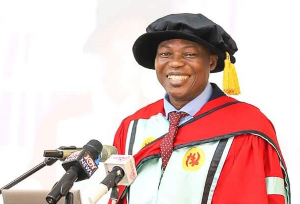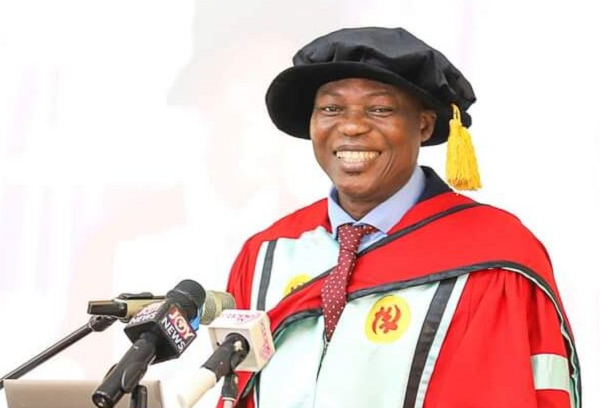 Professor John Gartchie Gatsi will lead BoG’s expert team to operationalise Islamic Banking in Ghana
Professor John Gartchie Gatsi will lead BoG’s expert team to operationalise Islamic Banking in Ghana
The Bank of Ghana is taking strategic steps toward the implementation of Islamic Banking, with newly appointed Monetary Policy Committee advisor, Professor John Gartchie Gatsi, spearheading the initiative.
Professor Gatsi, who also serves as Dean of the Business School at the University of Cape Coast, will work with a dedicated team to develop this alternative financial system.
Governor of the Bank of Ghana, Dr Johnson Asiama, announced at the 124th Monetary Policy Committee (MPC) press briefing held in Accra on Friday, May 24, 2025.
He underscored the central bank’s readiness to accommodate Islamic Banking, a financial model compliant with Islamic Shariah law that prohibits interest-based transactions.
“Professor Gatsi is purposely here to help drive this introduction. Let me say that we have internal capacity, we have some people who know what it takes and what to do. However, we need a few steps. The head of banking supervision has gone through a lot of programmes, he is very comfortable with them,” Dr Asiama revealed.
Dr Asiama acknowledged that while the current regulatory framework, specifically the Banks and Specialised Deposit-Taking Institutions Act, 2016 (Act 930), allows for Islamic banking, certain critical elements were not included in the legislation.
“The current banking law, which is Act 930, which we passed in 2016, provides for it. However, there were some lapses. For example, the establishment of the Sharia supervisory boards and the like. Those were not captured in Act 930, so Professor Gatsi and his team will be doing some work in that regard to ensure that we are able to operationalise Islamic financing, especially Islamic banking,” he explained.
“Remember, it goes just beyond Islamic Banking; there are other aspects of financing involved. So we are working on it. Hopefully, very soon, when we are ready, we can consider licenses to establish an Islamic Bank,” Dr Asiama added.
Addressing broader economic concerns, Dr Asiama also touched on recent developments in the exchange rate market.
Following the Ghanaian cedi’s significant rebound against major international currencies, many consumers are anticipating downward adjustments in prices.
“You can understand that some people stock their goods at a higher exchange rate, and so naturally, even with the appreciation, it takes a while for you to see that adjustment. However, rest assured that you will see the adjustment certainly so long as there is competition, so long as it is not a monopoly, and we will see that kind of phenomenon very soon,” Dr Asiama said.
Responding to a question on the sustainability of the cedi’s appreciation, he emphasised the importance of focusing on long-term trends rather than short-term gains.
“The Cedi appreciation has to be put into proper context. Much as you want to have Cedi stability in nominal terms, the important thing here is to ensure that in real terms, the Cedi is not appreciating persistently. And so the MPC went into a lot of deliberations, looked at the real movement of the exchange rate, and we think that where we are now, we don’t have that problem of real appreciation that would adversely impact our competitiveness,” he added.
He was quick to clarify that the current currency gains are market-driven, not propped up by central bank interventions.
“But the appreciation is largely driven by the markets, it is not something that the central bank is using its reserves for. If you look at the data pack we have put out, you can see that our reserve programme is growing, so we are not using our reserves to intervene in the market, therefore, the appreciation you are seeing is driven by economic policy stance of the monetary policy, by international flows. So yes, it is appreciation; however, for us, it is about maintaining exchange rate stability,” he explained.
FKA/MA
